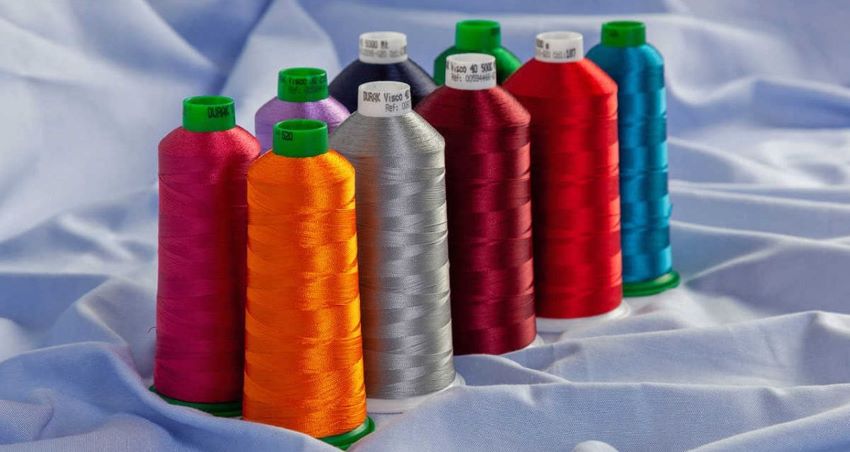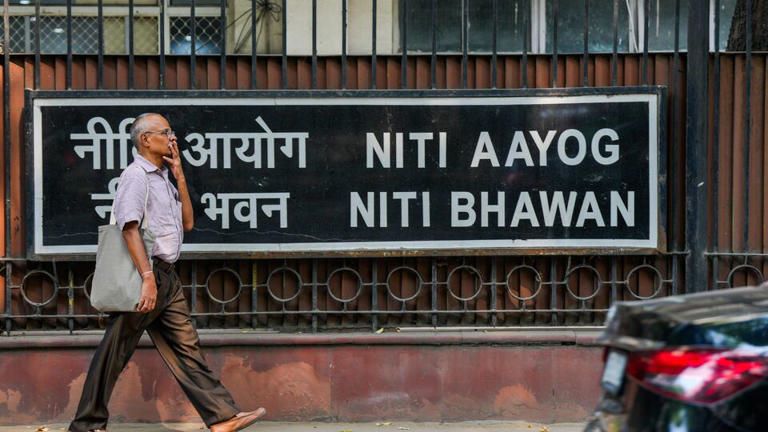"The Indian handloom industry has a rich and long history spread over thousands of years. From weaving during the Harappan civilization to spinning materials in Vedic times it’s been a long history. Even though the handloom industry, has taken major strides over the years weavers in the country are facing great hardships. Not just because it is an unregulated sector but also because of increasing mechanization and industrialisation. The most troubling aspect however, is the huge disparity in pay between weavers and mass producers of fashion who acquire their exquisite works for a paltry sum, and sell them at exorbitant rates."
 The Indian handloom industry has a rich and long history spread over thousands of years. From weaving during the Harappan civilization to spinning materials in Vedic times it’s been a long history. Even though the handloom industry, has taken major strides over the years weavers in the country are facing great hardships. Not just because it is an unregulated sector but also because of increasing mechanization and industrialisation. The most troubling aspect however, is the huge disparity in pay between weavers and mass producers of fashion who acquire their exquisite works for a paltry sum, and sell them at exorbitant rates.
The Indian handloom industry has a rich and long history spread over thousands of years. From weaving during the Harappan civilization to spinning materials in Vedic times it’s been a long history. Even though the handloom industry, has taken major strides over the years weavers in the country are facing great hardships. Not just because it is an unregulated sector but also because of increasing mechanization and industrialisation. The most troubling aspect however, is the huge disparity in pay between weavers and mass producers of fashion who acquire their exquisite works for a paltry sum, and sell them at exorbitant rates.
Weaving them into the mainstream
However, with some entrepreneurs striving to bring these weavers into the mainstream by ensuring they get remunerated fairly for their work things are expected to change. One of such entrepreneur is the Banka-based Udyan Singh, who founded Banka Silk, a non-profit organisation, which works for the betterment of weavers across Bihar since 2012. A civil engineer by qualification, the 35-year-old founded Banka Silk to develop a handloom cluster and an ecosystem to support handloom research, design and creation, as well as to train and empower local artisans and craftsmen in Bihar.
remunerated fairly for their work things are expected to change. One of such entrepreneur is the Banka-based Udyan Singh, who founded Banka Silk, a non-profit organisation, which works for the betterment of weavers across Bihar since 2012. A civil engineer by qualification, the 35-year-old founded Banka Silk to develop a handloom cluster and an ecosystem to support handloom research, design and creation, as well as to train and empower local artisans and craftsmen in Bihar.
Banka Silk recently collaborated with Avinash Pathania and Kiran Kheva, the organisers of the fashion week, India Runway Week, which was held in the national capital in April. As a part of the collaboration, over 40,000 weavers got a chance to sell their work directly to designers at prices deliberated by them. As a result, the weavers made a direct profit without the involvement of any middlemen.
Promoting local art
Founded in 2012 by Avinash Pathania, the Indian Federation for Fashion Development (IFFD) is aimed at facilitating action and inspiring growth in the fashion industry. The collaboration with Banka Silk, bridged the gap between designers and weavers. IFFD also promotes local artisans, while providing quality handloom fabrics to fashion designers without them having to visit any stores. The company also signed agreements with around 30 participating fashion designers, giving them access to pure handloom fabrics at weavers’ price for the designers’ future works.
Financing growth
Another social entrepreneur working towards the upliftment of weavers is Mumbai-based costume designer and stylist Nikhat Mariyam Neerushaa, who, earlier this year, founded the Roots in India initiative for weavers with the aim to provide financial support, work, etc. Neerushaa’s program, goes beyond buying, selling and providing market access to artisans by helping them in other ways as well. In Rajasthan, for instance, Neerushaa ensured that the weavers received water for dyeing clothes
Pollachi-based husband-wife duo Mani Chinnaswamy and Vijaylaxmi Nachiar, who set up Ethicus, are credited with everything from encouraging farmers to setting up the country’s first organic cotton farm in Pollachi, Coimbatore, to creating a sustainable fashion brand. One of the most significant aspects of their sustainable fashion brand is how each product (mainly saris and blouses) carries a tag with details of where the cotton was grown, who the artisans were and how many days it took them to complete the garment.
A platform for their voice
But nowhere is the plight of artisans as grim as conflict-ridden Jammu & Kashmir. Famous for their own style of intricate embroidery and winter wear, Kashmiri handloom artisans need not just an outlet for their work but for their voice as well. And channeling some of their concerns through her work is fashion designer Leena Singh who, in March this year, brought out a collection to pay tribute to the weavers of the state.
The Kashmir-centric collection, ‘The Reversible Shawl’ consisting of shawls, suit pieces, etc, made from Jamavar silk, was created after visiting the artisans’ homes several times over the course of the past year. Several months went into the exhaustive research, and in the designing and creation of each shawl, with Singh closely supervising the cuts and patterns for the Jamavar silk she sourced from J&K. The fabrics used in the collection carry Singh’s designs, with hand-embroidered beadwork and tassels by Kashmiri weavers.
Bright future ahead
Designers Ashima Leena, who has been around for close to three decades now, is known for its fashion-forward approach, but Singh now wants to dial it back a few notches to be able to resonate with regional artisans. She also plans to continue working with Kashmiri weavers and is hopeful that her customers would commission several pieces in the coming winter. These pieces will carry her design/motifs and the artisans’ handiwork, resulting in them being remunerated for the same.












